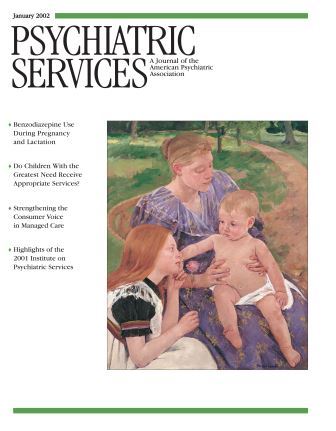Abstract
OBJECTIVE: This study assessed the extent to which clinical characteristics, psychiatric status, and use of mental health services explain incarceration for technical violations of probation or parole rather than incarceration for new offenses. METHODS: A total of 250 clients of an urban psychiatric probation and parole service were screened for psychiatric diagnoses and monitored with a 12-month data collection protocol. Longitudinal analysis was used to explain incarceration on new charges, incarceration on technical violations of probation and parole, or absence of incarceration. RESULTS: Eighty-five individuals (34 percent) were incarcerated during the follow-up period. Forty-four (18 percent) were incarcerated for a new offense, and 41 (16 percent) were incarcerated for a technical violation. Participation in mental health treatment was associated with a lower risk of incarceration for a technical violation. Intensive monitoring by mental health providers, such as through case management and medication management, were significant risk factors for incarceration for a technical violation. Clients who were incarcerated for a technical violation were more than six times as likely to have received intensive case management services. CONCLUSIONS: The role of mental health services in reducing the risk of incarceration remains mixed. Providing services that emphasize monitoring tends to increase the risk of incarceration for technical violations of criminal justice sanctions. However, any participation in treatment and motivation to participate in treatment appears to reduce the risk of incarceration.



